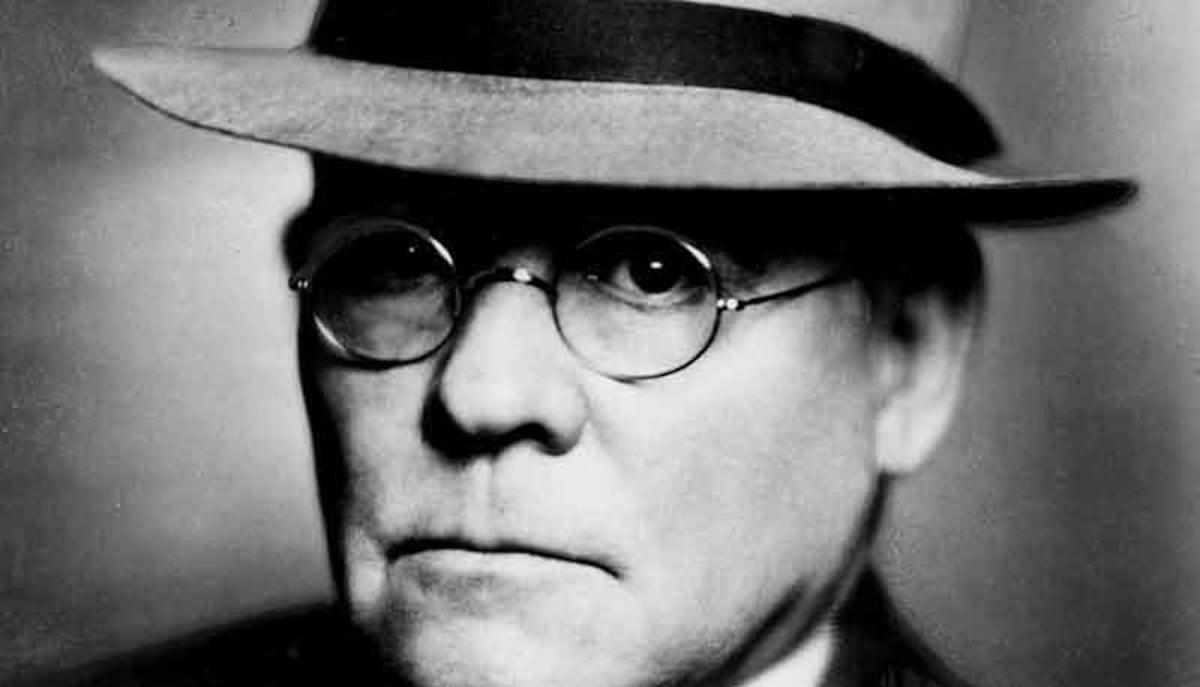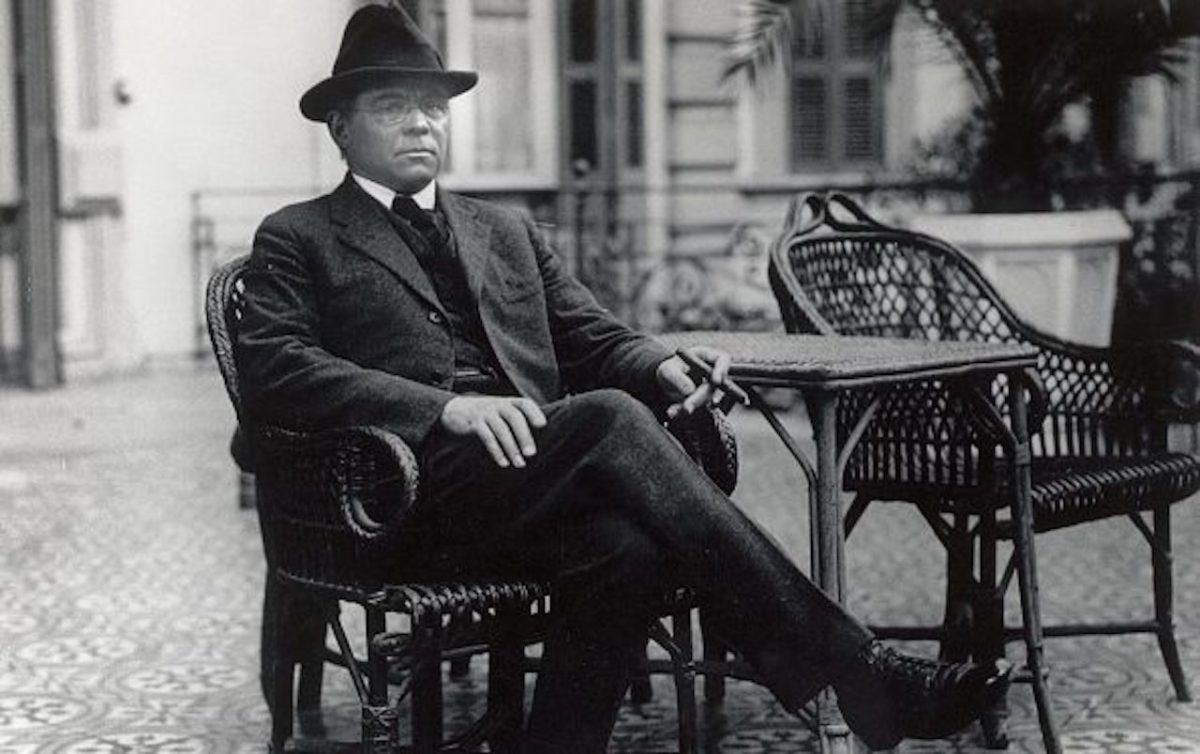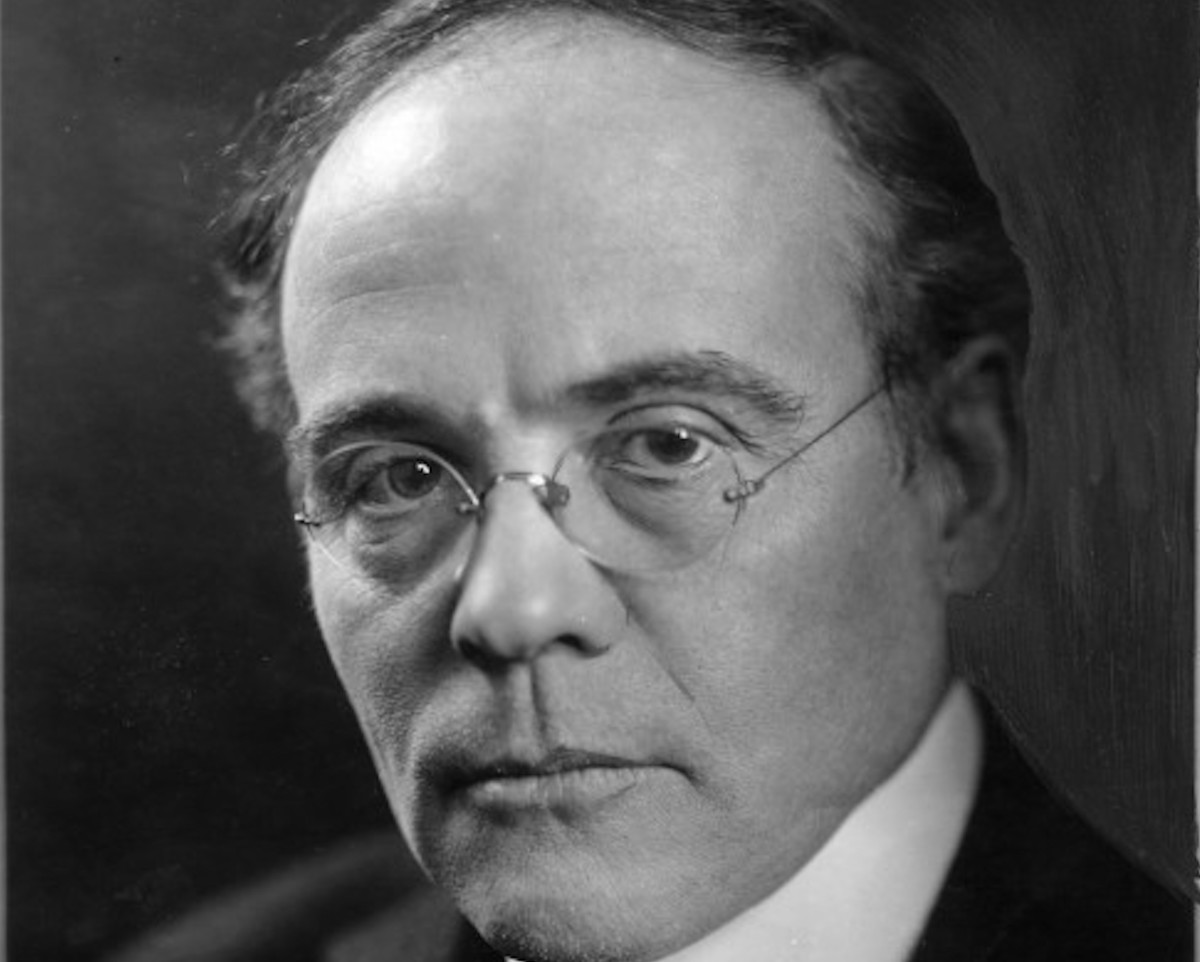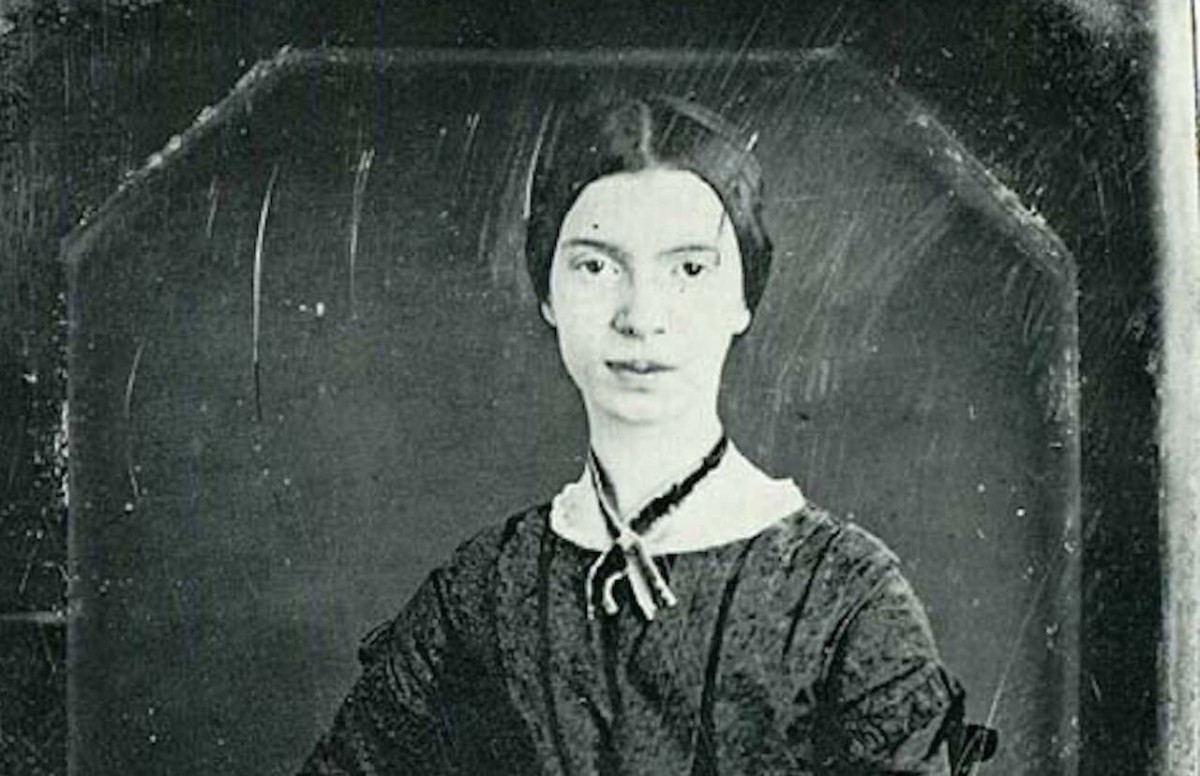Edgar Lee Masters' "Pauline Barrett"

Introduction and Text of "Pauline Barrett"
Pauline Barrett is one of the more pathetic characters speaking from the Spoon River graveyard. She commits suicide for the saddest of reasons and then questions if her poor, loving husband could understand her act.
Like many other epitaphs, much remains quite vague about Pauline's report. For example, it is not at all clear how she managed to commit suicide.
She just claims that while looking in the mirror and hearing something give her a patently empty piece of drivel masquerading as advice about life philosophy, she "did it." What she "did" will remain a mystery!
Pauline's personality as a confused woman does come through her report, despite the gaps in her revelations. Before the ultimate drama of suicide, she seemed to be asserting that she was, in fact, on the mend, but later backtracks into her pathetic description of herself as a "shell of a woman."
Pauline Barrett
Almost the shell of a woman after the surgeon’s knife!
And almost a year to creep back into strength,
Till the dawn of our wedding decennial
Found me my seeming self again.
We walked the forest together,
By a path of soundless moss and turf.
But I could not look in your eyes,
And you could not look in my eyes,
For such sorrow was ours—the beginning of gray in your hair,
And I but a shell of myself.
And what did we talk of?—sky and water,
Anything, ’most, to hide our thoughts.
And then your gift of wild roses,
Set on the table to grace our dinner.
Poor heart, how bravely you struggled
To imagine and live a remembered rapture!
Then my spirit drooped as the night came on,
And you left me alone in my room for a while,
As you did when I was a bride, poor heart.
And I looked in the mirror and something said:
“One should be all dead when one is half-dead—”
Nor ever mock life, nor ever cheat love.”
And I did it looking there in the mirror—
Dear, have you ever understood?
Commentary on "Pauline Barrett"
After an illness from which she seemed to be recovering, the vague, pathetic Pauline Barrett decides to take her own life because of the loss of marital intimacy.
First Movement: Illness and Surgery
Almost the shell of a woman after the surgeon’s knife!
And almost a year to creep back into strength,
Till the dawn of our wedding decennial
Found me my seeming self again.
Pauline Barrett begins by revealing that she has been ill and has had surgery. It has taken nearly a year for her to begin to get her health back. She says by the day of her tenth wedding anniversary though, she was her "seeming self again."
Pauline Barrett appears to be announcing the plight of a woman who has recovered from a serious illness; although she does not reveal what that illness was, or what the surgery entailed.
As many of the Spoon River deceased reports have done, Pauline remains vague in her pronouncements. However, the beginning of her epigraph sound quite optimistic, even hopeful.
Second Movement: Walking in a Forest
We walked the forest together,
By a path of soundless moss and turf.
But I could not look in your eyes,
And you could not look in my eyes,
For such sorrow was ours—the beginning of gray in your hair,
And I but a shell of myself.
The second movement finds Pauline and her husband walking together in a forest. She describes the path as "soundless moss and turf." The quietness of the walk should be indicative of the serenity that the couple feels, but then Pauline adds the odd disclosure that the couple could not look into each others' eyes.
Pauline then adds another negative detail which in any other context might not be construed a negative as she claims that her husband's hair was beginning to turn gray. She then seems to backtrack by flatly stating that was "but a shell of myself."
However, Pauline's earlier mentions of being a "shell of herself" had contained qualifiers, as in the opening line when she claims to "almost a shell of a woman." And then she also stated that she was almost her seeming self, yet now she appears to have regressed back to being a full on "shell" of herself.
Third Movement: Avoid Talking
And what did we talk of?—sky and water,
Anything, ’most, to hide our thoughts.
And then your gift of wild roses,
Set on the table to grace our dinner.
Pauline then shifts her attention to other behavior the couple experiences. They talked about the sky or water, perhaps, or maybe some other topics in order to avoid talking about what was really on their minds.
She seems to be implying that it was still her illness and her puny health that was on their minds, and they continued to avoid talking about the subject.
But then Pauline reveals an important fact about this man to whom she is married. He had given her "wild roses" and placed them on their dinner table for the their enjoyment. Pauline appreciated the gesture saying they were "to grace our dinner."
Fourth Movement: Struggled Bravely
Poor heart, how bravely you struggled
To imagine and live a remembered rapture!
Then my spirit drooped as the night came on,
And you left me alone in my room for a while,
As you did when I was a bride, poor heart.
Pauline then calls her thoughtful husband, "Poor heart," and observes that he struggled bravely. But then she adds that he struggled bravely in order to attempt to retrieve the life they had before her illness.
Likely, she is referring to their sex life, as she complains that her husband has to "imagine and live a remembered rapture!" But she does not report any behavior on the husband's part to imply that he had any such thoughts.
Pauline then makes it quite clear that it is she who is bummed about their loss of coital intimacy. She says she became morose as night wore on.
She reveals that her husband left their bedroom and likens his departure to their wedding night, implying that their first experience of intimacy did not go that well either. She pities her husband—again calling him "poor heart"—as much as she pities herself all because of loss of their sex life together.
Fifth Movement: Suicide over Sex
And I looked in the mirror and something said:
“One should be all dead when one is half-dead—”
Nor ever mock life, nor ever cheat love.”
And I did it looking there in the mirror—
Dear, have you ever understood?
Pauline finally creates a little drama that implies that she just could not take it any longer not being able to have sex anymore, and so she commits suicide. She gives her audience no clue about how she "did it."
But she "looked in the mirror" and fantastically heard "something" tell her that if one remains, "half-dead," one should actually be dead. This thing that spoke to her from her mirror told her never to mock life, and never to "cheat love."
But that is exactly what Pauline's suicide did: she belittled her own life by snuffing out the life she still enjoyed, and she cheated herself and her loving husband out the remaining years she had left. By her own admission, her health was improving.
And she has the gall to ask her thoughtful and obviously appreciative husband, “Dear, have you ever understood?" It does seem likely that this man understood much more than poor Pauline did.
He had stood by her giving her roses, placing them on the dinner table, taking her for a walk, and apparently caring for her during her illness.
Sometimes these Spoon River inmates defy reason and logic, make their audiences scratch their heads in disbelief, before moving on to the next. Little wonder that Edgar Lee Masters' series of epitaphs has become an American classic!

Related Edgar Lee Masters Information
- Life Sketch of Edgar Lee Masters Edgar Lee Masters’ American classic Spoon River Anthology brought the poet into the literary spotlight, and no other work from his extensive writings has attracted more attention, including his sequel to Spoon River The New Spoon River.
Commentaries on Edgar Lee Masters Poems
- Edgar Lee Masters’ "The Hill" The poem "The Hill" opens Edgar Lee Masters’ American classic Spoon River Anthology, which is told in a series of dramatic epitaphs by the deceased residents of Spoon River, an imaginary town in Illinois. The work might be considered a character study in poetry.
- Edgar Lee Masters’ "Hod Putt" Hod Putt considered himself a loser in life, but he envied those who were successful.
- Edgar Lee Masters’ "Fiddler Jones" and "Barney Hainsfeather" Fiddler Jones is one of the less melancholy figures of Spoon River, though he has his trials as well. Barney Hainsfeather's epitaph reveals a unique complaint of a man who laments being buried in the wrong cemetery.
- Edgar Lee Masters’ "Robert Fulton Tanner" Fulton is a pathetic character, who discovers that literally building a better mouse trap might only provide a cliché to fling at this thing vaguely called "Life."
The "Minerva Jones" Sequence
- "Minerva Jones" The "Minerva Jones" epitaph features one of the most depraved characters of the Spoon River talking dead. She is self-absorbed and haughty, lacking empathy and self-awareness, causing her to remain ignorant of her own discordant thoughts.
- "'Indignation' Jones" In the second epitaph of the "Minerva" series, the poetess’ father, "Indignation" Jones, fulminates against Spoon River society.
- "Doctor Meyers" The third epitaph in the Minerva Jones series features "Doctor Meyers," who performed the abortion that led to the death of the unfortunate poetess.
- "Mrs. Meyers" In the fourth epitaph in this series,"Mrs. Meyers," Dr. Meyers' wife testifies that her husband, whom she calls "poor soul," reaped what he sowed for his actions in life. The religious woman offers advice for a pleasant and peaceful life, reminding humanity to "Love God and keep his commandments."
- "'Butch' Weldy" The fifth and final epitaph "'Butch' Weldy" concludes the "Minerva" series. Butch declaims about his ordeal after a work related accident—with nary a nod to Minerva.
The Pantier Sequence
- "Benjamin Pantier" and "Mrs. Benjamin Pantier" Unbridled arrogance, overweening vanity along with cowardly weakness have combined to bring about the destruction of the marriage of Mr. and Mrs. Benjamin Pantier. The husband appears to be weakling allowing himself to be cowed by his wife, an arrogant bully.
- "Reuben Pantier" Reuben Pantier's colorful character helps dramatize the power of spiritual love for healing the mind, heart, and soul, even through the distance of miles and decades. Reuben is the son of the dysfunctional couple Mr. and Mrs. Benjamin Pantier.
- "Emily Sparks" The epitaph "Emily Sparks" in Edgar Lee Masters’ American classic Spoon River Anthology is the fourth entry in the sequence of five epitaphs featuring a dysfunctional couple, their son, and the latter’s influential mentor.
- "Trainor, the Druggist" Edgar Lee Masters’ "Trainor, the Druggist" from the American classic Spoon River Anthology offers a final installment covering the pitiful story of the Pantiers: Mr. and Mrs. Benjamin Pantier and their son Reuben.
This content is accurate and true to the best of the author’s knowledge and is not meant to substitute for formal and individualized advice from a qualified professional.
© 2025 Linda Sue Grimes





